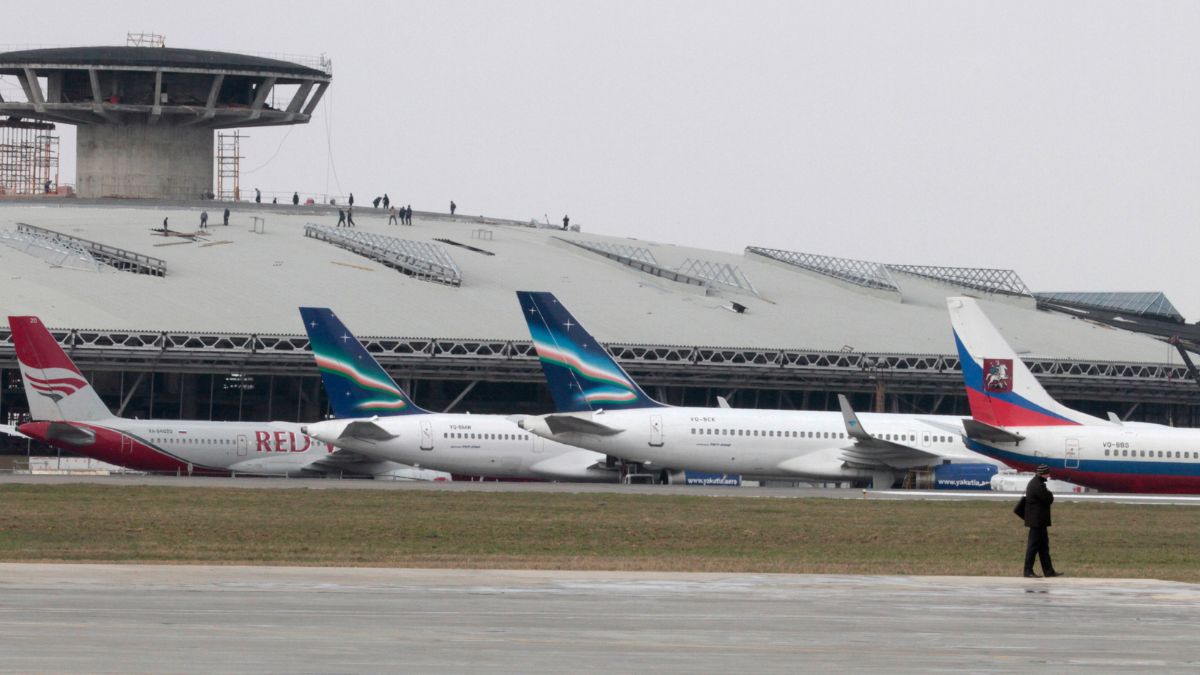Russia’s aviation sector has hit turbulence due to its war with Ukraine. Stung by Western sanctions, Russian airlines are facing a shortage of planes, making it difficult to meet the increasing demand for air travel.
Reports say Moscow is now looking at “friendly” countries to bridge the shortfall. It has reportedly reached out to Indian airlines to run domestic flights in its airspace.
Let’s take a closer look.
Has Russia sought help from Indian airlines?
Moscow has approached Indian airlines with a ‘cabotage’ proposal, as per an Economic Times (ET) report.
Cabotage is when foreign airlines operate flights to carry domestic passengers within another country.
The financial newspaper report mentioned that the proposal, which was also extended to China and some Central Asian countries last month, was brought up during Prime Minister Narendra Modi’s visit to Russia for the Brics summit last week.
However, it is unlikely that Indian airlines will accept Russia’s proposal. The carriers have told the Centre that companies that leased them the aircraft would not agree to this given the Western sanctions on Russia .
They also pointed out that they are struggling with a shortage of planes to operate in India, affecting their expansion plans.
“Most of the fleet of Indian carriers are leased and lessors will not give permission for their planes to go to Russia. Along with that we risk losing insurance covers," a senior airline executive told ET. “There is a tremendous aircraft shortage and we are not being able to cater to our planned expansion. In such a situation, it looks unlikely that such a project will be undertaken.”
Impact Shorts
More ShortsWhat about other countries?
Russia is also in talks with some Central Asian countries, reportedly including Uzbekistan and Kazakhstan.
Earlier this month, Russian Transport Minister Roman Starovoit said Moscow was in touch with friendly countries to operate domestic flights. “The possibility of allowing cabotage transportation is being considered against the backdrop of a shortage of aircraft fleet,” he said, as per The Moscow Times.
“To date, there has been no official request from the Russian side on the issue,” Kazakhstan’s transport ministry told the Reuters news agency last week. Tajik authorities also say they have not received any official request.
As per the news agency, Kazakhstan’s transport ministry said it was focused on fulfilling the surge in domestic demand for air travel.
Some say Central Asian airlines are not likely to take the risk and indulge Russia. Speaking to Reuters, Artem Zhavoronkov, a partner at Russian law firm Nordic Star, said, “This is a serious risk and hardly any large companies from neighbouring countries will be prepared to accept it.”
Russia’s aviation woes
Russian airlines use several Western aircraft. Before Russia invaded Ukraine in February 2022, Boeing and Airbus planes made up a significant number of flights run by Russian airlines.
Since the sanctions, Western companies halted all planned supplies of planes to Russian airlines and stopped access to components and software.
As ET noted, aircraft need regular replacement of components and upgradation of software. If that does not happen, Russian planes would have to be grounded.
Before the Ukraine war , Russian airlines had a fleet of 850 planes. This figure dropped to 736 by the start of 2023, The Moscow Times reported citing consulting firm Oliver Wyman. It forecasts that due to Western sanctions, the fleet could be halved by 2026.
Last year, state-owned industrial conglomerate Rostec’s CEO Sergei Chemezov had warned President Vladimir Putin that the “retirement” of airliners “of foreign companies” will start in 2025 as they will require “major repairs”, reported The Moscow Times.
To overcome the potential loss of foreign planes, Moscow launched a programme to make aircraft domestically to substitute its imports.
Russia plans to produce 1,000 indigenous aircraft by 2030 for its airlines. But the production keeps getting delayed.
As Steven E Harris, Professor of Modern Russian and European History, University of Mary Washington, wrote for the US-based think tank Wilson Center, “The transition to total import substitution is proving difficult, making it impossible to fulfill early targets of the manufacturing plan. By withdrawing access to Western technology critical for manufacturing, sanctions have successfully shut down production. Russian manufacturers will produce at best inferior aircraft that fly shorter routes using more fuel.”
As per The Moscow Times report, Russia has so far produced two Tupolev-214 (Tu-214) and an Il-96-300.
The shortage of planes has come amid a rise in demand in Russia. After Russian airlines saw a dip of 14.7 per cent to 94.7 million in passenger figures in 2022 due to Western sanctions, it reported an 11.3 per cent uptick last year. According to Rosaviatsia, Russia’s civil aviation watchdog, the passenger numbers are expected to again increase this year.
With inputs from agencies


)

)
)
)
)
)
)
)
)



